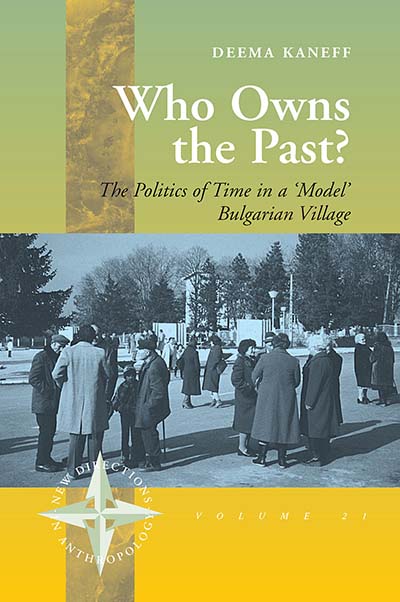
Series
Volume 21
New Directions in Anthropology
See Related
Anthropology JournalsEmail Newsletters
Sign up for our email newsletters to get customized updates on new Berghahn publications.
Who Owns the Past?
The Politics of Time in a 'Model' Bulgarian Village
Deema Kaneff
240 pages, bibliog., index
ISBN 978-1-57181-534-7 $135.00/£104.00 / Hb / Published (January 2004)
ISBN 978-1-84545-298-8 $34.95/£27.95 / Pb / Published (October 2006)
eISBN 978-1-78238-662-9 eBook
Reviews
“It is an intelligent idea to look at society in terms of competing renditions of the past, and this can be rewarding for studies of other than socialist societies...The book demonstrates the significance of meaning for state formation.” · Focaal
”…the book is an intelligent reading of rural socialist Bulgaria; it demonstrates the significance of meaning for state formation in general and places the artifacts of humanities, history tradition, and folklore right at the center of political science.” · Focaal
"…a welcome addition to the literature on the relationship between politics and history in the rural areas of socialist Bulgaria…The book masterfully explains how the official socialist version of local history was created and disseminated through life history narratives, ceremonies, awards and textbooks…The book is very readable and could be successfully used in undergraduate classes." · JRAI
Description
In the decades since the collapse of socialism in eastern Europe, time has been a central resource under negotiation. Focusing on a local community that was considered a "model" in the socialist period, the author explores a variety of state-sponsored and unofficial pasts - history, folklore, and tradition - and shows how they "fit" together in everyday life. During the socialist period, the past was a central dimension of local politics and village identity. Post-socialist development has demanded a revaluation of temporality - as well as public and private space. This has led to fundamental changes in social life and political relations, reduced local resources, threatened village identity and transformed political activity through the emergence of new political elites.
While the full implications of this process are still being played out, this study underlines some of the fundamental processes prevalent across eastern Europe that help explain widespread ambiguity vis-B-vis post-socialist reform.
Deema Kaneff is reader in Social Anthropology at the Centre for Russian, European and Eurasian Studies at the University of Birmighnam.




